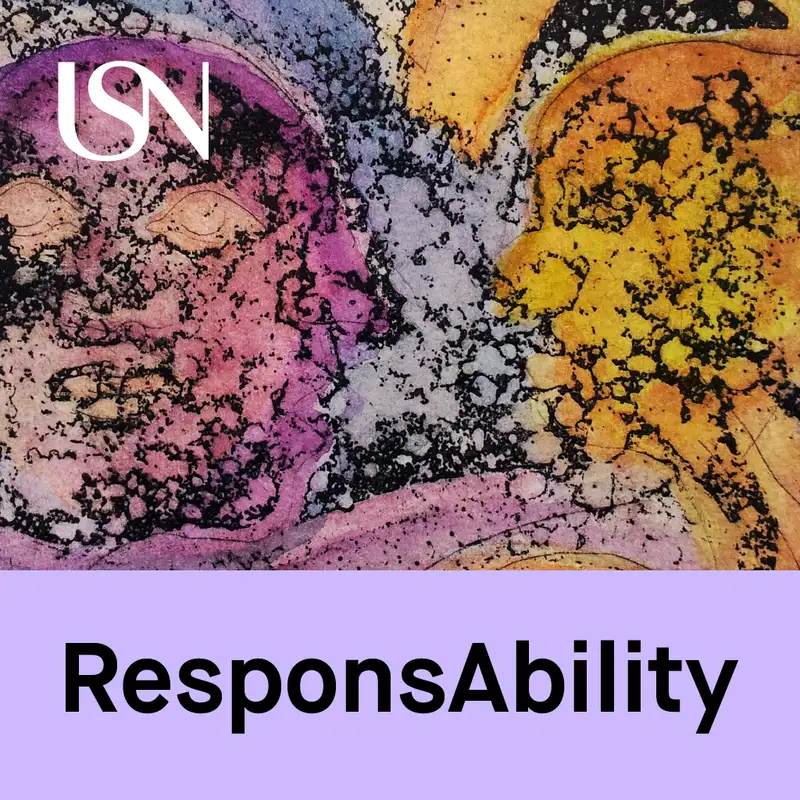#16 Alfried Längle & Eva Maria Waibel | Existential Pedagogy and Existential Analysis
TRANSCRIPT SUMMARY
(This transcript summary was AI-generated and then edited by the podcast hosts for quality assurance)
#16 ALFRIED LÄNGLE & EVA MARIA WAIBEL | EXISTENTIAL PEDAGOGY AND EXISTENTIAL ANALYSIS
- a podcast dialogue with Michael Noah Weiss and Guro Hansen Helskog
INTRODUCTION
In this deeply engaging episode, Professors Eva Maria Waibel and Alfried Längle join hosts Michael Noah Weiss and Guro Hansen Helskog to explore existential thought in education and psychotherapy. Drawing from logotherapy, existential analysis, and existential pedagogy, they reflect on what it means to live and teach with responsibility, presence, and care in an increasingly fragmented world.
EXISTENTIAL ANALYSIS: MEANING AT THE CORE
Alfried Längle introduces existential analysis as the “Third Viennese School of Psychotherapy,” building on Freud and Adler but focusing on human meaning. Grounded in Viktor Frankl’s logotherapy, existential analysis centers on the person’s capacity for freedom, responsibility, and finding purpose.
Längle shares how his early work with Frankl shaped his thinking—but also where he diverged. While Frankl emphasized rational meaning, Längle expanded the approach to include emotional depth and relational experience. This more holistic vision recognizes that people don't just think meaning—they feel and live it.
FOUR FUNDAMENTAL EXISTENTIAL MOTIVATIONS
A cornerstone of Längle’s contribution is the model of four fundamental motivations:
1. Being in the world – the need for safety and affirmation of life.
2. Being with the world – the desire for connection and belonging.
3. Being oneself – the pursuit of identity and self-worth.
4. Being in the world in a meaningful way – the drive for purpose.
Disruption at any level, he argues, can lead to existential distress—not necessarily pathology, but disorientation. Therapy, then, becomes a way to help people reconnect with these basic existential needs.
EXISTENTIAL PEDAGOGY: BRINGING DEPTH TO EDUCATION
Eva Maria Waibel extends these insights into education. Existential pedagogy, she explains, treats students not as passive recipients of information, but as meaning-making beings. The educator’s role is to accompany learners as they discover who they are and what matters to them.
Based on her experience in teacher education, Waibel emphasizes the need for educators to be reflective, authentic, and emotionally present. Teaching is not just about content—it’s about forming human beings capable of responsibility and relational engagement.
BEYOND PERFORMANCE: EDUCATING THE WHOLE PERSON
Both guests warn against performance-driven education systems that neglect the human dimensions of learning. For Längle, education must start with the teacher’s own self-awareness: “Why am I doing what I’m doing?” Only by being grounded in their own motivations can teachers support their students' growth.
Waibel stresses that good teaching involves presence, courage, and deep listening. Responsibility isn’t taught through rules—it’s learned through relationships, attentiveness, and ethical engagement.
FREEDOM, RESPONSIBILITY, AND RELATIONAL LIFE
A central thread in the conversation is the idea that freedom is not about unlimited choices, but about meaningful ones. True freedom comes with responsibility—to oneself, others, and the world. This view reframes responsibility not as obligation, but as response-ability—the capacity to respond with care and awareness.
Both Längle and Waibel emphasize that human beings are fundamentally relational. Healing in therapy and growth in education both depend on genuine connection. A good therapist or teacher helps others feel seen and heard—creating space for transformation.
SUFFERING AND THE ROLE OF MEANING
The episode also explores how existential approaches face suffering. Längle notes that suffering is part of life—but when it is integrated into a broader narrative of meaning, it can be transformative. Waibel brings this into the classroom, especially when working with young people who have experienced trauma. Existential pedagogy doesn’t avoid pain—it helps students make sense of it.
This requires presence: teachers who are emotionally grounded and able to support students not just intellectually, but ethically and emotionally.
TRUST, EMOTION, AND SPIRITUAL DEPTH
Trust, both agree, is foundational. Without it, real dialogue—and real growth—is impossible. Längle distinguishes between authentic emotional engagement and superficial sentimentality. Emotions, when taken seriously, are not distractions but guides to what truly matters.
The conversation also touches on spirituality—not in a religious sense, but as inner anchoring. Längle defines it as the capacity to connect with deeper meaning, to transcend immediate circumstances. Waibel sees teaching itself as a spiritual act—when done with care, it speaks to the soul as much as the intellect.
RESPONDING TO TODAY’S CHALLENGES
The guests reflect on the pressures of modern life—acceleration, disconnection, and anxiety. Längle observes that we’re not suffering from a lack of choice, but from too many, which leads to paralysis. The challenge is not more freedom, but more grounded freedom.
Waibel critiques the performance culture in schools, which alienates both students and teachers. What’s needed is a return to presence, slowness, and attentiveness. In today’s world, existential pedagogy isn’t optional—it’s vital.
FINAL REFLECTIONS: LISTENING AS RESPONSIBILITY
As the episode closes, both guests return to the theme of responsibility as listening. To be responsible is to be attuned—not only to others, but to one’s own inner life, to emotions, and to what is truly being asked of us. This form of listening is ethical, relational, and transformative.
Längle emphasizes that to be human is not just to function, but to live meaningfully. Waibel calls for an education that nurtures the whole person—mind, heart, and soul—and prepares students not just for careers, but for life.
CONCLUSION
This episode of the ResponsAbility Podcast offers a profound reflection on how existential analysis and pedagogy can help us navigate the challenges of our time. Through the wisdom of Längle and Waibel, listeners are reminded that responsibility, freedom, and care are not abstract ideals—they are the foundations of what it means to be fully human, and to live and teach with integrity in a complex world.
